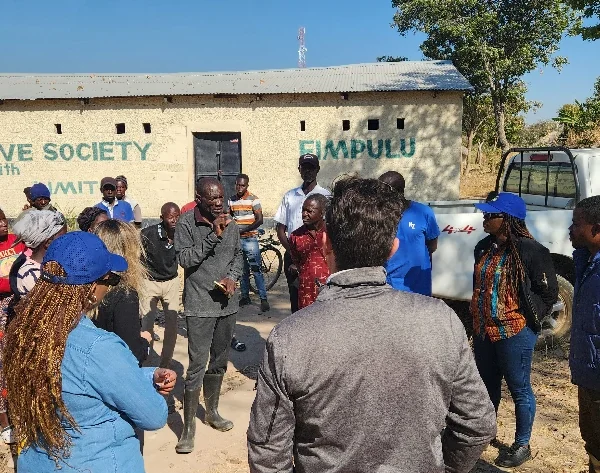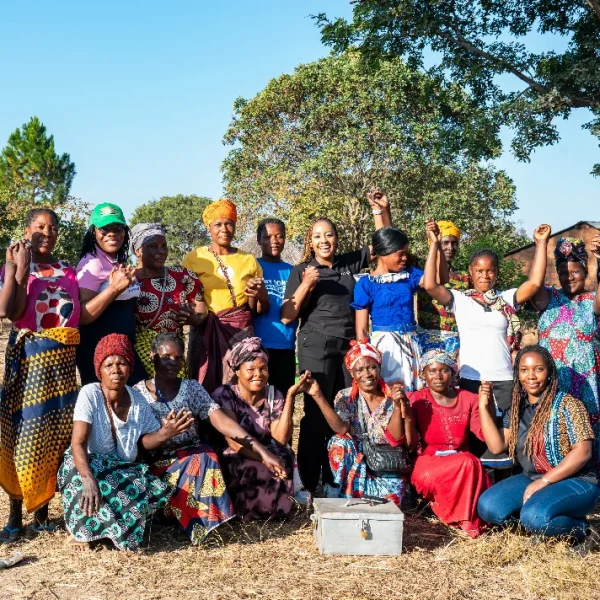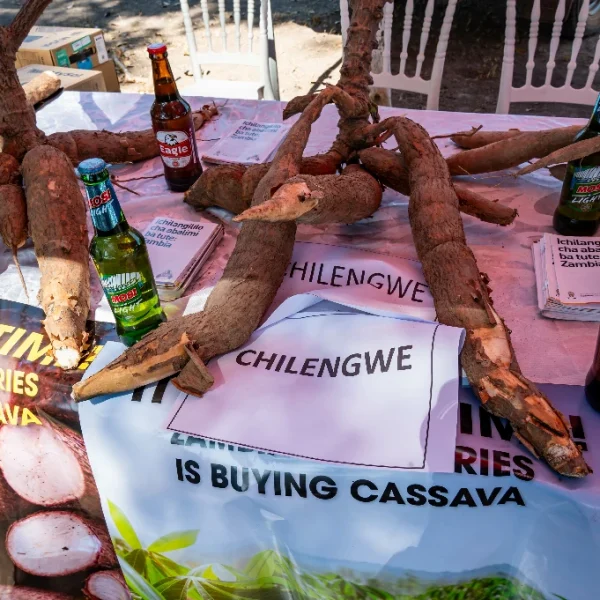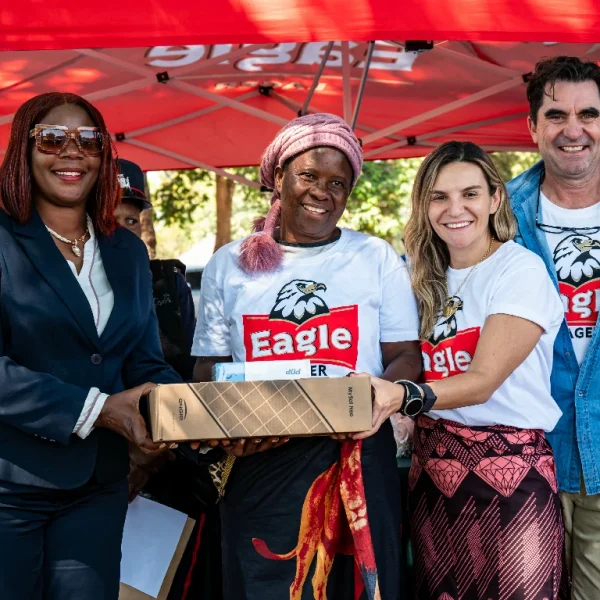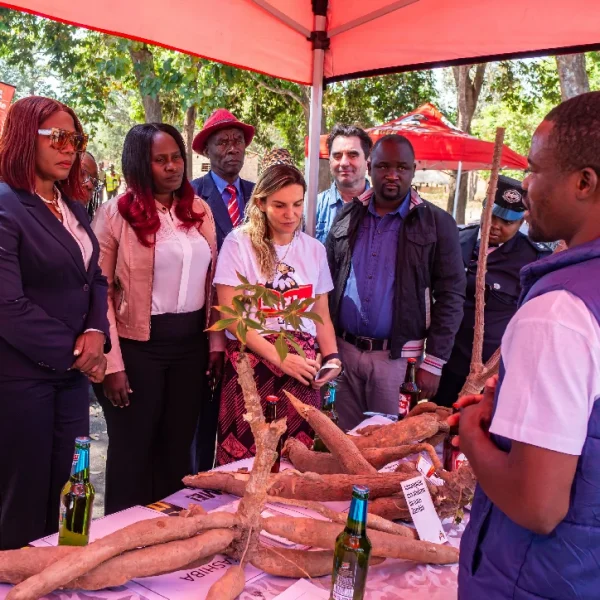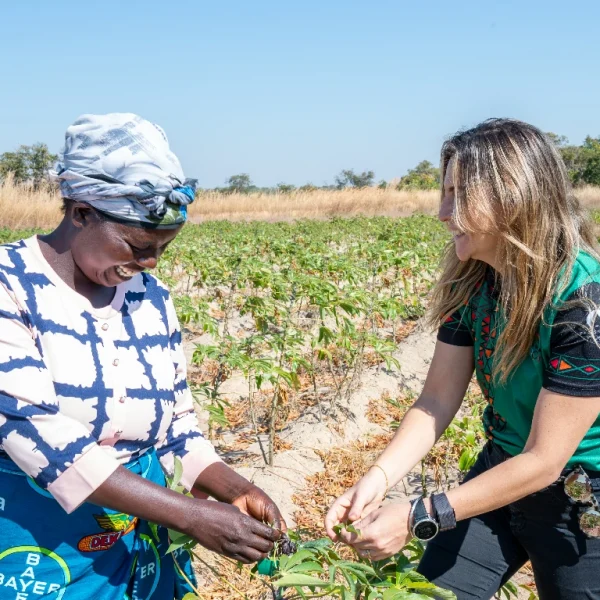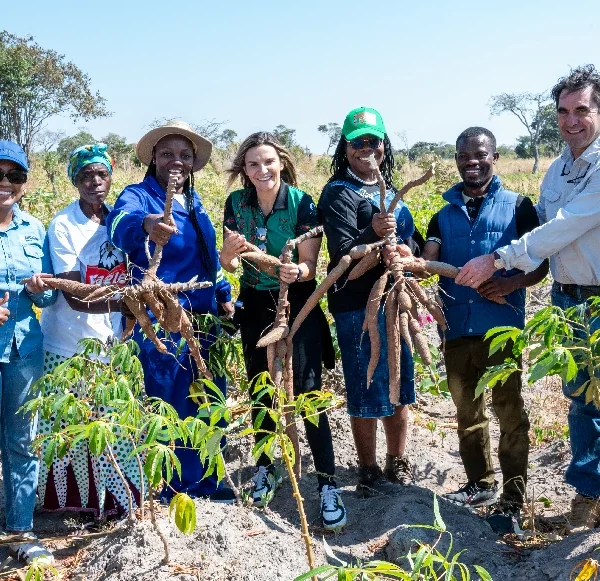The Zambian Breweries Cassava Programme has significantly impacted the lives of local farmers in Luapula Province by driving economic growth and promoting agricultural sustainability through incorporating cassava into flagship products like Mosi Light and Eagle Lager.
At a recent event in Chipili District celebrating Cassava Farmers’ Day, Luapula Province Deputy Permanent Secretary (DPS) Prudence Mwansa Chinama praised local cassava farmers’ dedication and hard work. She emphasised the critical role of cassava in the region’s agricultural landscape, especially in light of the recent droughts affecting crop production nationwide.
“Luapula Province has long been recognised as a significant contributor to Zambia’s agricultural sector, and cassava remains one of our primary crops,” said DPS Chinama. “The cassava procured by Zambian Breweries is a key ingredient in the production of Eagle Lager and Mosi Light beers, a notable achievement as these locally developed and brewed beers have ingredients sourced right here in Luapula Province.”
Zambian Breweries’ cassava programme has created numerous opportunities for local farmers, ensuring their integration into the value chain. This integration provides a stable market for their produce and encourages crop diversification and employment.
Zambian Breweries CEO Thais Cavinatto highlighted the company’s dedication to local sourcing and value addition. “Zambian Breweries has had the privilege of working with farmers from across the country through our out-grower schemes, nurturing strong partnerships over the years,” she said. “By empowering our cassava farmers, we not only ensure a reliable supply of raw materials but also promote value addition and local sourcing, which are fundamental to who we are as Zambian Breweries.”
Smallholder farmers in Luapula Province have historically faced numerous challenges, including unpredictable weather patterns, crop diseases, and limited access to markets and improved farming techniques. However, private sector companies like Zambian Breweries are crucial in providing sustainable solutions.
A representative from the Zambia Agriculture Research Institute (ZARI), Chief Research Officer for Region 3, Crisanty Chama, praised the collaborative efforts between ZB, Musika, and various stakeholders in addressing these challenges. “Through partnerships with Zambian Breweries, Musika, and other stakeholders, we have introduced disease-resistant cassava varieties and provided farmers with training and resources to enhance their productivity and profitability,” Mr Chama stated.
The cassava out-grower schemes and community-based programmes initiated by ZB have created substantial opportunities for crop diversification and economic growth in Luapula Province. In the 2024 season, the brewery will purchase cassava at K5 per kilogram or K5,000 per tonne, creating a steady income source for farmers. This is further strengthened by innovative technologies like BanQu’s blockchain digital platform, which enables seamless transactions and allows smallholder farmers to receive their payments in minutes.
Beyond these efforts, Zambian Breweries is also supporting initiatives such as Village Savings and Loan Associations (VSLA) groups to help cooperatives thrive. These initiatives demonstrate our commitment to the broader growth of our farmers and communities. By providing access to financial resources and fostering cooperative development, we empower farmers to invest in their futures and diversify their economic activities. This holistic approach reflects our dedication to not only cassava cultivation but also the overall advancement of our farmers and the communities in which they live.
Furthermore, at the Cassava Farmers’ Day, ZB honoured some of its hardworking smallholder farmers with mobile phones and solar kits to enhance their access to technical agronomic information and financial services. Such initiatives are vital in promoting sustainable farming practices and boosting productivity.
“As Zambian Breweries, we understand that our success is intertwined with the prosperity of our communities. When you thrive, we thrive,” added Cavinatto. “We are committed to building strong communities focused on sustainability and socio-economic development.”
The ZB Cassava Programme’s success in Luapula Province serves as a model for sustainable agriculture and local economic development. As more farmers embrace improved farming methods and value addition, the future looks promising for cassava farming in Zambia.
DPS Chinama concluded, “To Zambian Breweries, I say well done and please continue to support our cassava, small-scale farmers. We celebrate the milestones so far but acknowledge that this is just the start. It will require all our continued and concerted efforts to realise the full potential of cassava farming in Luapula Province.”
With the combined efforts of the government, local leadership, the private sector, and local farmers, the cassava industry in Luapula Province is poised for continued growth and success.
